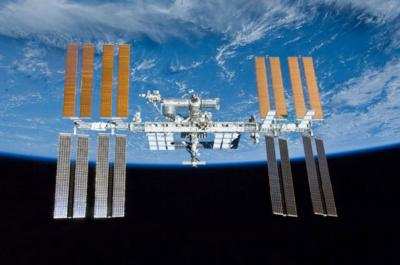Tue, Jul 14, 2015
Operational And Maintenance Issues, International Partnership Among The Topics Discussed
The Subcommittee on Space held a hearing late last week to examine the current status of the International Space Station (ISS) and evaluate NASA' plans for dealing with operational and maintenance challenges. Witnesses at the hearing also discussed the status of the ISS partnership, how NASA is utilizing the ISS to enable future deep space exploration, and the Administration’s request to extend ISS operations to 2024.

“From advances in our understanding of human health and performance to our use of new materials to the utilization of robotics and satellites, the benefits we receive from the ISS are many and diverse," said subcommittee chairman Brian Babin (R-TX) (pictured). In addition to the benefits back on Earth, the ISS offers the conditions necessary to prepare and develop critical technologies for deep space and long-duration human spaceflight missions.
“This Committee has a responsibility to ensure that the American taxpayers are getting all that they can from every dollar they send to the Federal Government. I believe this investment is worthwhile and that the benefits far outweigh the cost. Support for the ISS and its operations and utilization is not a partisan issue, it is an American issue. I look forward to working with my friends on the other side of the aisle and our partners in the space industry to understand how we can all meet the operational challenges facing the ISS program.”
Since 2013, the ISS program has experienced a number of challenges. Astronauts have experienced water leaks in their suits three times, with one incident occurring during a spacewalk. On April 26, 2013, an unmanned Russian Progress cargo vehicle damaged a laser radar reflector when docking with the ISS. On January 14, 2015, a false alarm of an ammonia leak caused the crew to retreat into the Russian segment.

Cargo supply missions have also faced challenges. On October 28, 2014, an Orbital Science’s unmanned cargo launch failed just after launch. On April 28, 2015, a separate Russian Progress cargo vehicle failed to reach the ISS. On June 7, 2015, a planned re-boost of the ISS using a docked Progress vehicle failed but eventually was successful after troubleshooting. On June 10, 2015, a visiting Soyuz vehicle unexpectedly fired its engines without being commanded. Most recently, on June 28, 2015, a SpaceX unmanned cargo launch failed as well.
Members and witnesses noted these challenges at Friday’s hearing and pointed to the program’s effective response as a testament to NASA, ISS partners, and contractors.
More News
Aero Linx: Transport Canada We are a federal institution, leading the Transport Canada portfolio and working with our partners. Transport Canada is responsible for transportation p>[...]
Gross Navigation Error (GNE) A lateral deviation from a cleared track, normally in excess of 25 Nautical Miles (NM). More stringent standards (for example, 10NM in some parts of th>[...]
From AirVenture 2017 (YouTube Edition): Flight-Proven Booster On Display At AirVenture… EAA AirVenture Oshkosh is known primarily as a celebration of experimental and amateu>[...]
Aircraft Parachute System (CAPS) Was Deployed About 293 Ft Above Ground Level, Which Was Too Low To Allow For Full Deployment Of The Parachute System Analysis: The day before the a>[...]
Also: 48th Annual Air Race Classic, Hot Air Balloon Fire, FAA v Banning 100LL, Complete Remote Pilot The news Piper PA-18 Super Cub owners have been waiting for has finally arrived>[...]
 ANN's Daily Aero-Linx (06.29.25)
ANN's Daily Aero-Linx (06.29.25) ANN's Daily Aero-Term (06.29.25): Gross Navigation Error (GNE)
ANN's Daily Aero-Term (06.29.25): Gross Navigation Error (GNE) Classic Aero-TV: Anticipating Futurespace - Blue Origin Visits Airventure 2017
Classic Aero-TV: Anticipating Futurespace - Blue Origin Visits Airventure 2017 NTSB Final Report: Cirrus SR22
NTSB Final Report: Cirrus SR22 Airborne Affordable Flyers 06.26.25: PA18 Upgrades, Delta Force, Rhinebeck
Airborne Affordable Flyers 06.26.25: PA18 Upgrades, Delta Force, Rhinebeck




